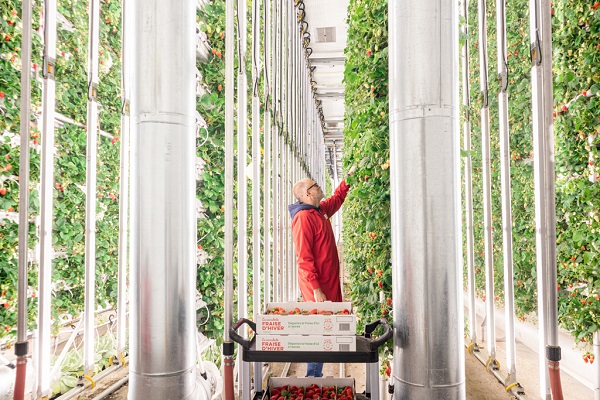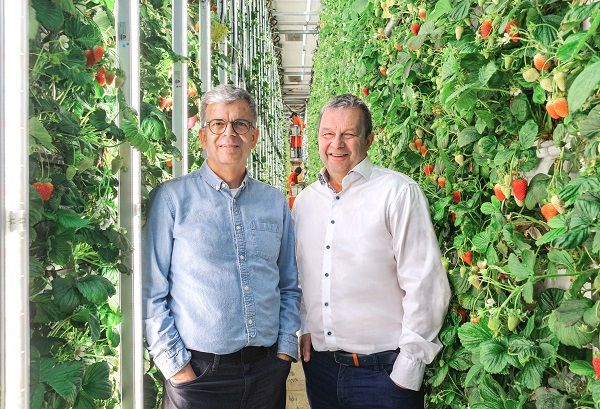
Winter Farm Cultivates Success With Integrated Farming Approach, Sustainable Solutions
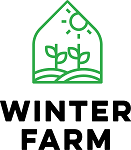
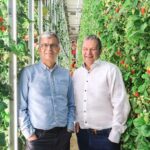
Winter Farm’s focus on environmental sustainability, achieving food autonomy, and strategic partnerships has garnered attention and headlines, with recent funding of $46 million raising the bar for its ambitious goals. Indoor Ag-Con had the chance to catch up with the innovative Quebec-based company’s leaders — Yves Daoust, Founder and CTO (pictured above left) and Alain Brisebois, President and CEO (pictured above right) — to discuss the advantages of their approach, their goal of helping growers replace 10% of Canada’s strawberry imports, the renowned Fraise d’hiver strawberry, funding strategies and future opportunities in the CEA industry.
Winter Farm is described as a “tech company that designs, deploys, and operates controlled environment agriculture (CEA) solutions that work in harmony with existing agrifood systems.” Can you share how your technology and approach differ from other vertical farms and advantages it offers in terms of yield, quality, and cost-effectiveness?
Yves Daoust: Winter Farm’s concept fully integrates a strawberry vertical farm with an adjacent greenhouse: this shows the company’s deep understanding of the grower’s reality. As a result, our strawberry vertical farm is capable of efficiently heating the greenhouse in the wintertime. As heat recuperation is a major concern in controlled environment agriculture (CEA), this solution constitutes a major innovation that reduces the dependence of greenhouses on fossil fuels and lowers their carbon footprint. In addition, the integration allows for additional revenue generation as farmers can grow strawberries in the vertical farm, as well as peppers, lettuce, eggplant, or tomatoes etc. in the greenhouse using the same amount of energy. The Winter Farm solution exemplifies that it is possible for CEA to be both profitable and environmentally sustainable at the same time. To realize this dual objective, we use a multidisciplinary approach to intelligent automation – integrating producers’ knowledge, agronomy, engineering, and artificial intelligence (AI). Our system of environmental digital control, CERVEAU, aims to optimize yield, maximize energy efficiency, and improve revenues by fully characterizing the strawberry plant’s behavior in CEA by data, physical modeling and machine learning.
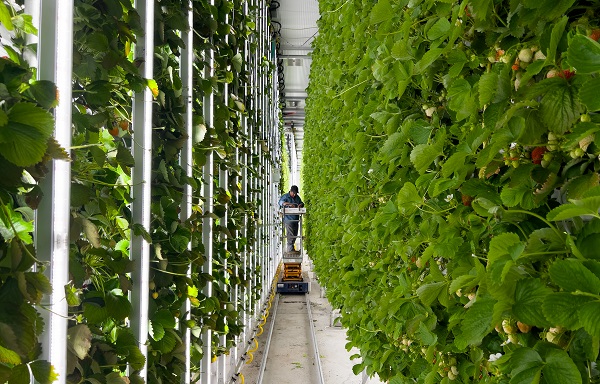 One of Winter Farm’s goals is to help growers replace 10% of Canada’s strawberry imports. Can you speak to some of the environmental and economic benefits that could come from achieving this goal, and how Winter Farm is working to make it a reality?
One of Winter Farm’s goals is to help growers replace 10% of Canada’s strawberry imports. Can you speak to some of the environmental and economic benefits that could come from achieving this goal, and how Winter Farm is working to make it a reality?
Alain Brisebois: Vertical farming is a promising new agricultural advance that holds potential for sustainable agriculture in the future. At Winter Farm, in addition to providing efficient heating of the adjacent greenhouse, vertical farming eliminates the need for chemical pesticides well known for their harmful effects on both the environment and human health. Additionally, since Winter Farm allows local production, it minimizes transportation needs, further reducing the carbon footprint of fruit and vegetable production. Further benefits of our production practices include significantly lower water usage compared to traditional field production and the maximization of cultivable areas with the vertical stacking of the production. By utilizing heat management and recovery technology, we enable growers to produce an array of greenhouse produce in winter, thereby jointly promoting food autonomy and generating additional revenues for the growers. Our goal is to offer sustainable solutions for agriculture, not just for Quebec, but for the communities worldwide that face challenges related to food security.
Please share a little more about the Fraise d’hiver Strawberry and what makes it so special.
Alain Brisebois: Fraise d’hiver literally translate to “winter berry”. Quebec is renowned for its tasty field strawberries. It brings us a lot of pride to be able to offer consumers that special Quebec taste during the winter months! Thanks to an optimally controlled environment that ensures high quality, freshness and flavor, the Fraise d’hiver strawberry’s natural sweetness and vibrant red color are truly what make it stands out in the market.
Congratulations on the recent announcement of your $46 million raise! We read that this funding is coming from a variety of sources, including government organizations and private partners. Can you talk about Winter Farm’s approach to securing funding and building strategic partnerships?
Alain Brisebois: Thank you very much! In an emerging industry like ours, financing is crucial. This funding was especially important to us as it demonstrates that our concept can be successfully integrated into the agricultural industry and that CEA can be both sustainable and profitable. Winter Farm’s approach to securing funding and building strategic partnerships has always been guided by a strong commitment to innovation and a profit-driven mindset. Additionally, our company’s goals and vision are in line with government priorities, such as promoting food autonomy, reducing greenhouse gas emissions, and developing a more sustainable economy. When we designed the solution, it was paramount that it be eligible to the available agricultural financing and support programs. We have also demonstrated how the agricultural sector can embrace the digital era with cutting-edge technology that is ready to deploy, which has been instrumental in our success so far. Our Vaudreuil location will soon be producing nearly 1 million kilos of strawberries per year, which is a significant achievement for us and the vertical farming movement. We are now thrilled to continue partnering with growers and building new sites!
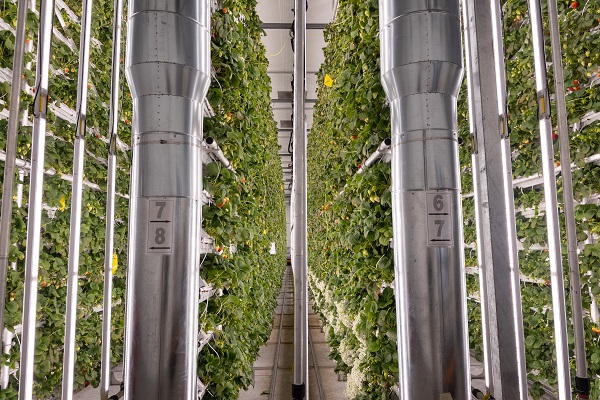 What do you see as the biggest opportunities for the CEA industry as a whole in years to come, and how is Winter Farm working to seize them?
What do you see as the biggest opportunities for the CEA industry as a whole in years to come, and how is Winter Farm working to seize them?
Yves Daoust: Currently, a major focus in CEA is on energy accessibility and cost. Winter Farm’s success has been based on addressing this aspect from the outset. This has provided us with the momentum to continue building an increasingly sustainable and profitable CEA solution for fresh produce agriculture. Innovation is crucial for the future of the industry, and as such, Winter Farm is committed to furthering our AI-driven work in agronomy and engineering. Our goal is to ensure that our technologies are profitable and accessible to growers worldwide.
To learn more,visit the Winter Farm website.
controlled environment agriculture, indoor farming, strawberries, sustainability, vertical farming
